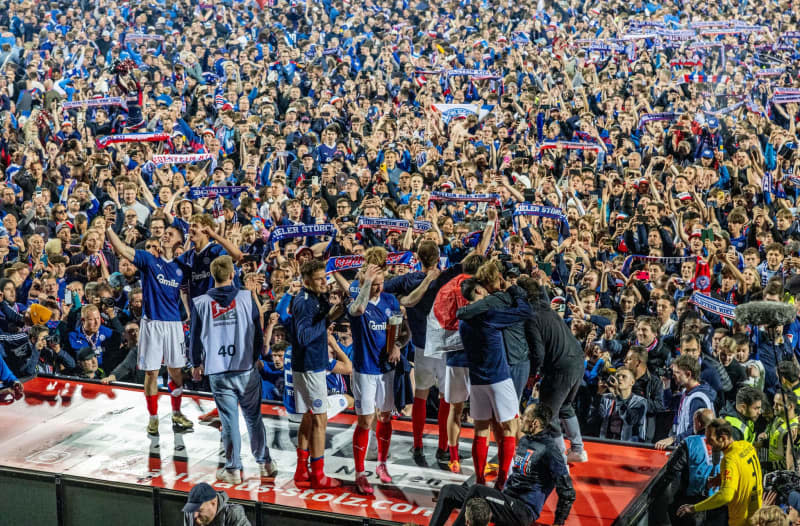EU Commission protests European flag ban at Eurovision Song Contest

The European Commission has complained to the organizers of the Eurovision Song Contest about reports that attendees were not allowed to bring European flags to the final in Malmö, Sweden on Saturday.
The organizer said in a statement that it only allows "the flags of the participating countries and the rainbow flags. There has never been an express ban on the EU flag in the written policy."
However, "due to heightened geo-political tensions, the flag policy was more rigorously enforced by security at this year's event," the European Broadcasting Union (EBU) said.
On Monday, European Commission chief spokesman Eric Mamer, when asked by reporters, said it is "regrettable that the flag of all the EU members taking part in the competition, as well as other states belonging to the Council of Europe taking part in the contest, could not be shown."
"From our point of view, there's absolutely no reason for this flag, which inherently is the flag also of member states of the European Union and of the Council of Europe, to be banned from the venue," said Mamer at the commission's daily press conference.
The European flag - which is blue with a ring of 12 gold stars - is the flag of both the EU and of the older Council of Europe, a looser association of 46 countries, including the 27 EU member states. It has been in use since 1955.
Before Mamer's press conference, European Commission vice president Margaritis Schinas told the news website Politico that the commission will ask the EBU for an explanation.
Mamer said the commission will "encourage the European Broadcasting Union to actually allow the flag to be shown, and even to ensure that it is shown if at all possible."
The EBU's statement didn't specify which "heightened geo-political tensions" had motivated stricter enforcement of the Eurovision flag policy.
But anti-Israel protesters targeted the contest over the participation of Israeli singer Eden Golan, who reached the final and came in fifth. The policy means Palestinian flags could not be shown, as well as European flags.
Over the weekend, the German government's anti-Semitism commissioner, Felix Klein, condemned the protests against Israel's participation as anti-Semitic.
On Friday, staff at VRT, the main public service broadcaster for Belgium's Flemish community, interrupted footage of the semi-final on Thursday to display a message protesting Israel's military action in the Gaza strip.

